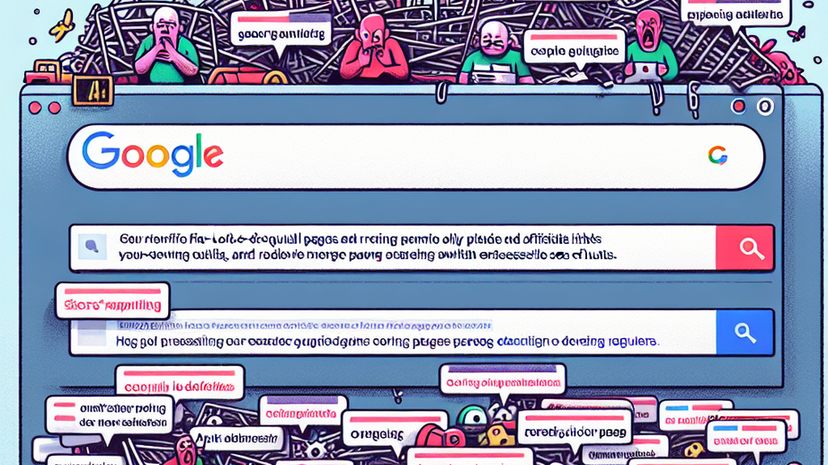In today’s digital age, search engines are an important part of our daily lives, providing quick and convenient access to information. However, recent studies and experts in the field are expressing concerns about the decreasing quality of Google’s search results. This decline raises questions about the trustworthiness of online content and the effectiveness of search engine optimization (SEO) strategies.
A study by researchers has revealed the declining quality of Google’s search results. The analysis focused on product-review searches on Google, Bing, and DuckDuckGo, showing an increase in low-quality websites on Google. This flood of poor content has negatively impacted user experience, leaving people frustrated and looking for alternative search engines that can provide more reliable information.
One of the main reasons for this decline is affiliate marketing, which compromises the quality of search results. Websites with low-quality content and too many affiliate links often rank higher, overshadowing more informative and trustworthy sources. This not only affects user experience but also undermines the credibility of search engine results.
In the face of this decline, major publishers are prioritizing content quality over immediate profit. They recognize the importance of providing reliable information to users and are committed to delivering content that meets the highest standards. Unfortunately, their efforts are often overshadowed by lower-quality websites in search engine rankings.
As competition for visibility on search engines increases, unethical techniques have emerged, with some websites using manipulative tactics to manipulate search results. This includes manipulating user-generated content, which is crucial for search engines like Google. Spammers exploit this vulnerability, jeopardizing the accuracy and reliability of search results.
Additionally, Google’s own practices have come under scrutiny. The search engine giant has increased the number of ads at the top of search results, favoring its own services over competitors. This self-promotion raises concerns about fair competition and contributes to a cluttered and confusing search results landscape.
Industry experts and researchers have long expressed concerns about the decline of Google’s search results. Lily Ray, a prominent SEO analyst, has even claimed that Google is in disarray. However, Google is aware of these issues and is actively working to address them. They continuously improve their algorithms to tackle the declining quality of search results.
This growing body of evidence highlighting a significant problem in the search engine industry has sparked debates about the credibility and effectiveness of SEO. While SEO is still crucial for online businesses, it has also given rise to schemes and practices aimed at manipulating search engine rankings. There is a clear need for a more transparent and reliable search engine ecosystem.
It is important to note that Google still performs better than its competitors, such as Bing and DuckDuckGo. However, the overall decline in search engine quality is evident across all platforms, emphasizing the need for collective efforts to address this issue.
In response to the alarming decline in search engine quality, companies like CNET have taken drastic measures to improve their performance on Google Search. CNET has deleted thousands of articles to enhance the relevance and reliability of their content. This reflects the urgency to prioritize quality over quantity and restore trust in search engine results.
As users, we rely on search engines to provide accurate and trustworthy information. The decline in search engine quality threatens to erode this trust and undermine the very foundation of the digital landscape. It is crucial for search engine providers, publishers, and SEO practitioners to collaborate and find solutions that promote content integrity and enhance the user experience.
In conclusion, the decline in the quality of search engine results, especially in the case of Google, raises serious concerns about the reliability and integrity of online content. While major publishers prioritize content quality, unethical tactics and the manipulation of user-generated content continue to compromise search engine rankings. It is essential for the industry to collectively address these issues and restore trust in search engine results, ensuring that users receive the reliable information they seek in an increasingly digital world.











